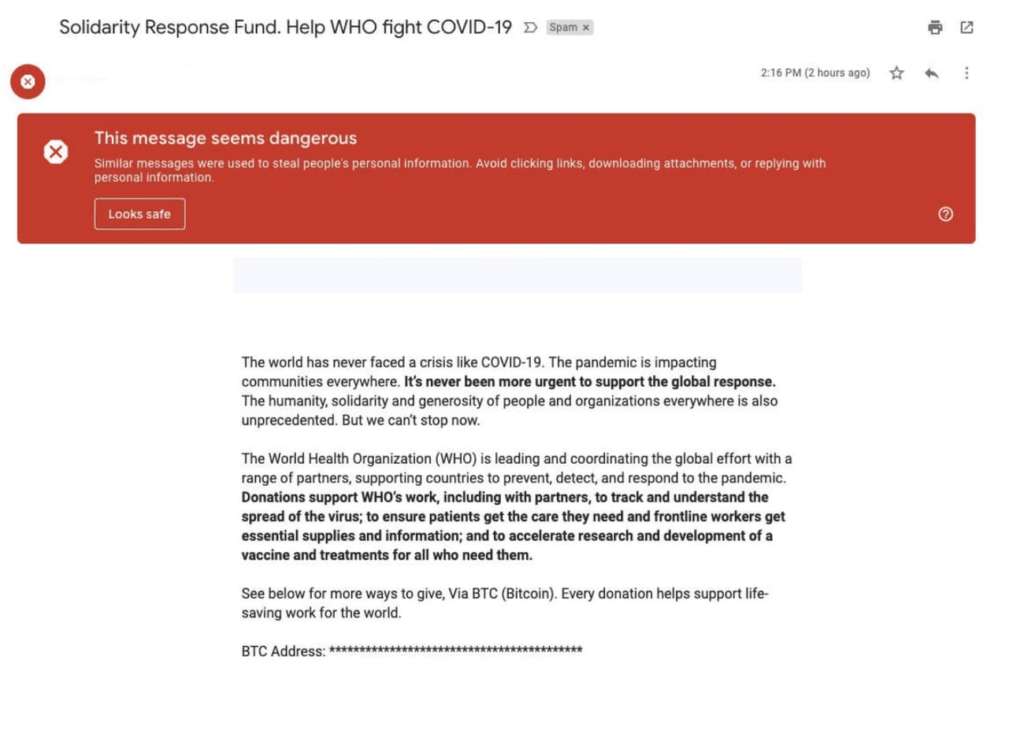Google provides facts and figures about the pandemic threats and gives administrators and users advice on how to address them. Criminals are exploiting the current pandemic for different scams. Google alone stops 18 million corona related phishing and malware attacks every day.
The 18 million e-mails with dangerous content were either attempted to hunt the victim with malware or they were so called phishing attempts. During phishing, the victims are to be forwarded to fake websites, on which sensitive data such as passwords are then hacked. The attackers in the corona crisis often pretend to be a government organization. In other cases, the attackers are said to have masqueraded as employees of companies in order to outsmart employees in the home office and get their data.

Hackers Take Advantage Of Fear
The observed hacking attacks and attempts to defraud partly exploit the fear of the virus, but partly also the helpfulness of the people. Some senders of malware campaigns pretend to be government organizations like the World Health Organization. The goal here is to sneak donations or to distribute files that can then install back doors.
Google Explained The Needs For Security Mechanisms
Google not only blocked emails, but also worked with the World Health Organization and explained the need for security mechanisms such as Domain based Message Authentication or email authentication. It makes it difficult for criminals to pretend to be a domain, thereby preventing harmful emails from reaching the recipients inbox. At the same time, the process ensures that legitimate communication gets through.
Organizations and administrators recommend Google to implement the defense measures implemented on their website for enhanced malware protection and to activate the security sandbox. The company recommends that users do a security check on their account, use the built in document preview and check the integrity of URLs before clicking.
